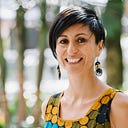Big questions, small actions: a recipe for survival
Over the December break I read a book called ‘Socrates Express’ by Eric Weiner, it is a sort of life manual based on the teachings of a number of philosophers who have long ago left this earth. After a year of reckoning with the fragility of human existence, this book was most timely and reminded me how important it is to ask big questions while engaging in small actions –both essential to avoid despair.
Consider walking, a seemingly simple activity for able-bodied people, which also frames our outlook of the world in profound ways. In the book, Jean Jacques Rousseau is quoted as the epitome of the walker, in the literal sense as he apparently spent many of his living days doing just that, but also as a way of exercising human freedom and connecting with nature.
Walking, particularly for those of us in urban settings is not only an important daily activity, (even during lockdown and perhaps most importantly then) it is an indicator of how “livable” our cities are. Is it safe, pleasant, inclusive and conducive to walk in your neighbourhood?
Indeed, strong frameworks have been developed to measure these elements, but I am yet to see one that captures whether or not those same streets are conducive to arriving at conclusions about the meaning of life or liberty. Not an easy measurement to establish for sure, but one that philosophers might deem important to add if we are to truly gauge the quality of our walking environment.
In another chapter the notion of imperfection comes up, specifically in the Japanese definition of fondness for what is imperfect or ‘wabi sabi’. I came across this concept in my adolescence and in an attempt to encapsulate my teenage angst; I adopted it as a sort of personal motto.
It has since featured in various moments of my life. I even remember using it during my days as a tennis player. Our team psychologist had asked us to think of a word that would bring calm when the nerves were getting the best of us during competition and I picked that. Alas, in sport, imperfection is precisely what one should avoid at all costs. The ball is either in or out of the court, an imperfect serve, let alone a second one, is definitely not conducive to the ultimate goal of a tennis match.
Nevertheless, the idea of beauty in imperfection was a way of dealing with the various insecurities and inadequacies of that period in life. Today, living in a time of absolute uncertainty, few ideas seem more fitting.
Perhaps it is also appropriate, that a few days ago I picked a book called Human Kind. Its author Rutger Bergman, another fan of Rousseau and his profound longing to return to nature while departing from our ill conception of civility, poses an interesting challenge to the current state of affairs.
In this book the tension between good and evil in relation to the essence of being human feels almost too simplistic. The destructive force of Covid-19 which has brought not just economies and millions of hearts to a stop, but which has led many of us to a state of hopelessness when thinking about the future, has also clouded my vision of what it means to connect with human kind.
And yet, because of what I have also witnessed during this pandemic, I could not in good faith accept the Hobbesian outlook on humans of intrinsic evil. After almost a year of being back in Cape Town, I can see that solidarity has made a dent on the day to day of entire neighbourhoods, that genuine friendships have been forged, and that people continue to share information, resources and advice without any incentive beyond wanting to connect with others and to help.
At the same time, it is simply illogical or at least I find it impossible to assume that we all care for each other. I don’t need to look at the news (the author cautions against the damaging impact of spending too much time watching the news which selectively focus on what is rare, unusual and most often negative) to see and feel the lack of empathy and fairness required in making our neighbourhoods and cities more humane and kind.
To be fair, I have not yet finished this second book and I suspect the author is laying out the ground to launch his case that love trumps evil. I wonder if those picking up this book are already hoping he makes a compelling case (the book was recommended by one of the most positive people I know!) I certainly want to believe he will.
Indeed, in this period of great imperfections, I am looking to philosophers who found some sort of answer to the big questions: life, death, conflict, beauty. But while dwelling on those grand ideas, I’m also reminded that it is the small actions that matter, that what is important is to keep moving and to appreciate the small things as Sei Shōnagon did. As Weiner points out “she knew our lives are nothing more, or less, than the sum of a million tiny joys.”
